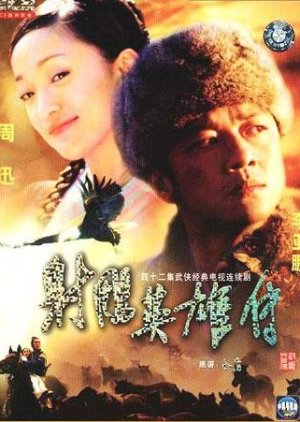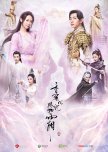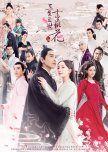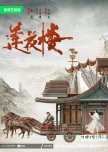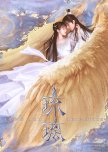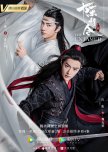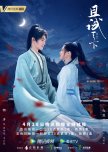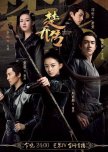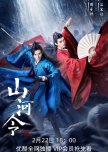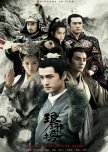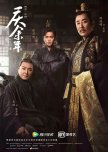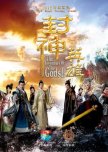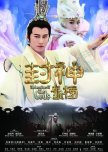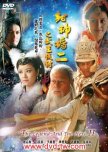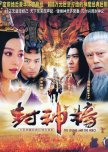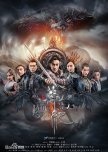
Gritty and epic
This version, out of the numerous adaptations of the same Jin Yong saga, the “Legend of the Condor Heroes”, was the least popular amongst those made in the last 30 years.However, this review was written with the hope that this version will receive more positive attention, as it was certainly deserving of it, being an earnestly and beautifully produced, directed and performed show which did the fantastic saga justice.
Plot:
Story-wise, this was one of the most faithful to the saga in the novels. It was also relatively well-executed. Hence, the plot, story and execution were the strengths of this adaptation. However, it was not without flaws as the show focused on certain parts of the story more than others, resulting in an imbalance (as per the story in the novels). If one was not too nit-picky, that was still one shortcoming which can be overlooked.
Particularly worthy of note was the period while the story was based in Mongolia. There was more emphasis on this phase of Guo Jing’s journey in this version than there were in the others, and the care taken were admirable. If there was an absolute I dare assert with regard to the adaptations, it was that the 2003 version had the best Mongolia-based-phase out of all existing adaptations, no ifs-or-buts about it. It was truly fantastic, even with the inevitable flaws.
Cast/Acting:
There were many criticisms and controversy with regard to the casting, especially for the main leads. However, while everybody had their own preferences for actors/actresses and their interpretations of the characters, personally, I found the acting and interpretations to be solidly competent and robustly interesting. I love the Huang Rong and Guo Jing here. Both the portrayals by Zhou Xun and Li Ya Peng were impressionable and highly memorable. They left their own marks on these classic characters.
The only main issue I had was with Yang Kang and his actor, whom I thought overacted most times. Still, he did well, just not really my cup-of-yes. The rest of the cast also did excellently and left a deep impression. I particularly appreciated the presence and gravitas some of the more veteran actors and actresses brought to the secondary characters, especially the more major characters of the wuxia masters.
Action sequences/CGI:
While there were some annoying overuse of CGI, overall, I thought the usage was appropriate for the scenes they were employed in, and did not unnecessarily overshadow the more traditional kungfu moves during the same action sequences.
Cinematography:
The cinematography here was simply breathtaking, with shooting locations spanning the breadth of China from the north to the south, giving a sense of deep realism to this version that moved me. In tandem with that touch of realism, the framing used also brought out the ethereal aesthetic of a black and white ink painting in many scenes, lending many scenes a sense of immersive beauty.
This version used a palette of muted and darker colours for its scenes, lending a dirtier, grittier and more epic feel to the whole show, which really matched the wuxia genre, I thought. Not only that, it lent a tinge of tragedy and bittersweetness throughout. While the story was a somewhat positive exposition on the journey of a patriot-hero, it was also a story littered with deaths and tragedies, and I applauded the show for not shying away from this sense of sadness through its visual presentation.
Costumes:
The costumes and set pieces utilised here could be considered simple and drab, but were actually custom made for the show based on historical records and the novels, and here too, the effort to be true to its source material and historical background was clearly shown.
Music:
While the tracks used here would have their work cut out for them in topping the nostalgic impact of the TVB adaptations’ theme songs, I never once thought it paled in comparison. The opening theme song, “Heaven and Earth Are in My Heart” was a marvelously epic encapsulation of the whole ‘hero’ journey, and the ending song, “True Love is Beautiful” was a lovely sentimental ballad which could well ensnare your audio senses. The musical score employed throughout the show was also suitably impressive - compositions which were predominantly classical Chinese instrumentals - elevating the impact of many scenes.
Conclusion:
This was the least pretty adaptation so far, with an intensity and realism that made it a more plodding viewing compared to other versions. However, it was the one which I thought captured most concisely the essence of the saga as written in the novels - from story, acting, backdrop, feels, props to cinematography - which was essentially a distillation of the idealisation of Confucian and patriotic values through the epic journey of Guo Jing. Hence, this version resonated deeply with me, and has remained my favourite out of all the ones I have had the pleasure to watch. It was truly a masterpiece worthy of its source material.
Choices:
If dark, gritty and epic is your cup of tea, the 2003 version is highly recommended.
If a slightly revisionist-story, specific/well-known actors/actresses and general prettiness are your preference, the 2008 version might be a good choice.
If bright, pretty, romance-weighted and ‘idol-ish’ are your preferences, the latest 2017 version would be a fine choice. This is quite a marvelous adaptation and relatively a faithful to the source material.
If a good story, wonderful acting, memorable OST, nostalgia and simple curiosity (as to why they were such beloved classics), the early-1980s TVB/HK-versions are a must.
The 1994 remake from TVB would also be a solid choice. Good performances and overall fabulous drama. (This was the series where I first fell in love with the saga and characters, and a well made adaptation which did not veer off much from the source material. Sometimes, first love doesn’t always leave the most lasting impression, and I am glad for that).
The 2024 adaptation had superb Wuxia vibes and was a relatively turbo-charged version of the saga as a whole. While there were some clear issues, it was nevertheless a highly entertaining watch. What made this adaptation special for me, however, is Ci Sha and his portrayal of Guo Jing. The 2024 version has my favourite Guo Jing and JingRong to date, and I am a fan who love all the Guo Jing and Huang Rong (also JingRong) I have ever watched.
Vond je deze recentie nuttig?
Yang Liping's Mei Chaofeng is the best to date
I've got to be honest that this is the version of LOCH that I like the least for many reasons. I have watched 5 versions and this one is my least favorite.Let's start with what I like.
It manages to deliver the epic storytelling of the sage. The Mongolian steppes as well as the people. Hustle and bustle of city life in the south. Pretty authentic.
The music really suits the theme of the drama. It brings out the sense of chivalry and patriotism, which is what it's all about. I especially love the music that accompanies the presence of Mei Chaofeng. It's beautiful and haunting at the same time.
The kung fu's choreographed really well. Really badass. Love it!
But what I love the most is the rendition of Mei Chaofeng by Yang Liping. It's the best! I was mesmerized. I was always looking forward to her appearance when I was watching the drama. Her Nine Yin White Bone Claw is terrifying but so beautifully choreographed. Her expression is cold without excessive make-up. There's a sense of terror, eeriness, and deep melancholy whenever she appears. It may be an unpopular opinion but one of my favorite characters in LOCH is Mei Chaofeng. Despite her ghost-like or witchlike appearance I sincerely sympathize with her. At the moment I'm reading the second book "A Bond Undone" where I get to explore her backstory and I become more and more sympathetic towards her and her tragic story. I hope they will make another adaptation which is longer so that her story can be included. Although LOCH 2003 has the best Mei Chaofeng of all the adaptations, but it still depicts her as a mere evil martial artist. The story of this badass female martial artist deserves a segment in the coming adaptation if there is.
Other than Yang Liping, I also like the actress who play Huang Rong and Mu Nianci. They did well too. Both Zhou Xun and Jiang Angel did justice to the character they played.
Now what I don't like.
In my opinion, some of the actors who played the main male characters were miscast. Li Yapeng for example. He looked to old to play Guo Jing. Guo Jing is said to be about 18 year old when he begins his adventure in jianghu. And Li Yapeng didn't suit to play the part as he looked too mature for the role. He did really well as Linghu Chong but I don't thing he did as Guo Jing. The actors who played Huang Yaoshi and Yang Kang, I don't think they're suitable for the part. Huang Yaoshi is my favorite characters in LOCH along with Mei Chaofeng and Hong Qigong. But the actor who played Huang Yaoshi here didn't have what it takes to be Huang Yaoshi.
And the costume, I just hate it. It's as if they were too lazy to think of what to put on the actors, picking up random costumes out of nowhere. The hairdo on Guo Jing and Yang Kang makes them look much older that they're supposed to be.
The makers of the drama seemed to want to aim a more gritty storytelling, but I don't think it worked. I read that the producer was the same person who had made "Laughing In the Wind". I love Laughing In The Wind. It's probably my top tier wuxia drama. Sombre tone works well with Laughing In The Wind. The story itself is just dark. Heavy conspiracy. Almost no funny moment there. But LOCH has more comedic moments. Gritty tone doesn't go well with LOCH.
In short, I wouldn't watch this version again for a very long time. And if I do, I would do it for Yang Liping's Mei Chaofeng. She's the best Mei Chaofeng hands down.
Vond je deze recentie nuttig?

